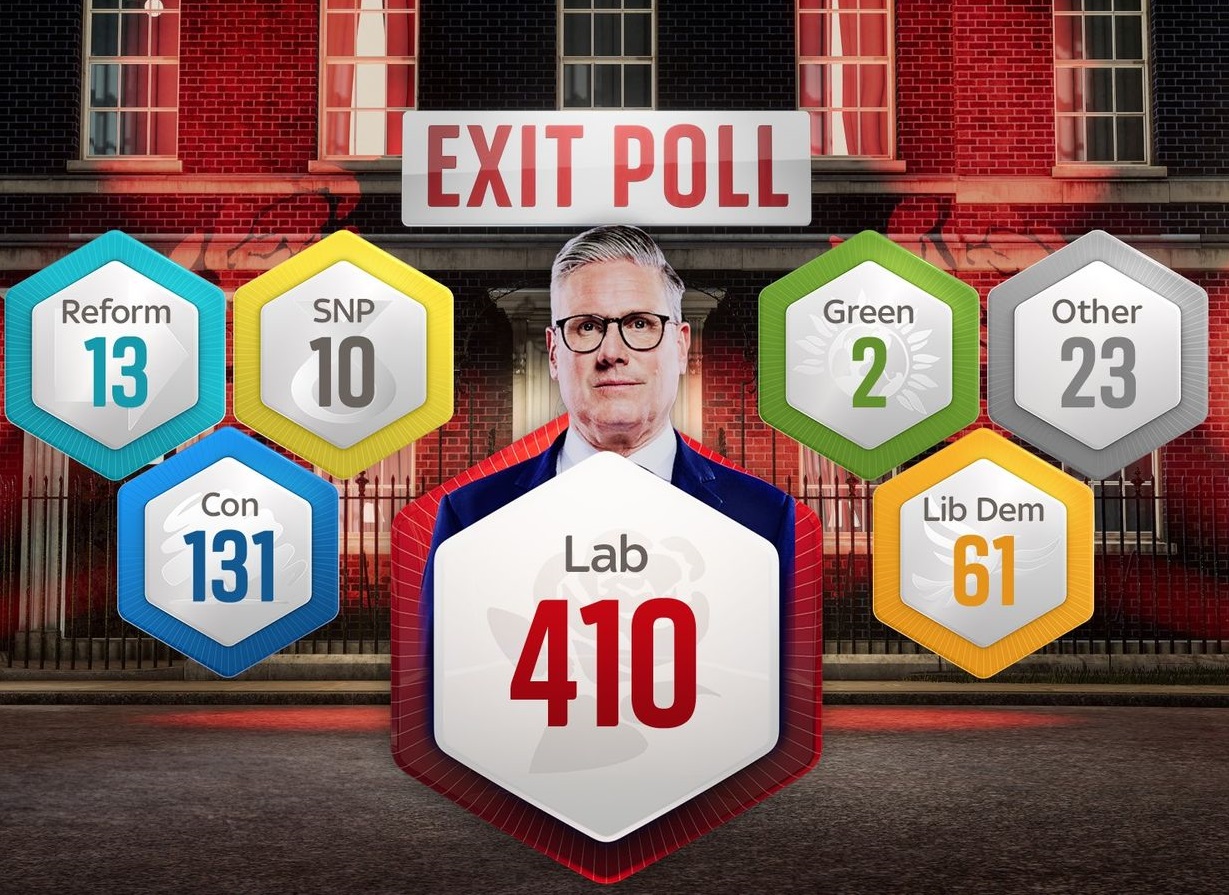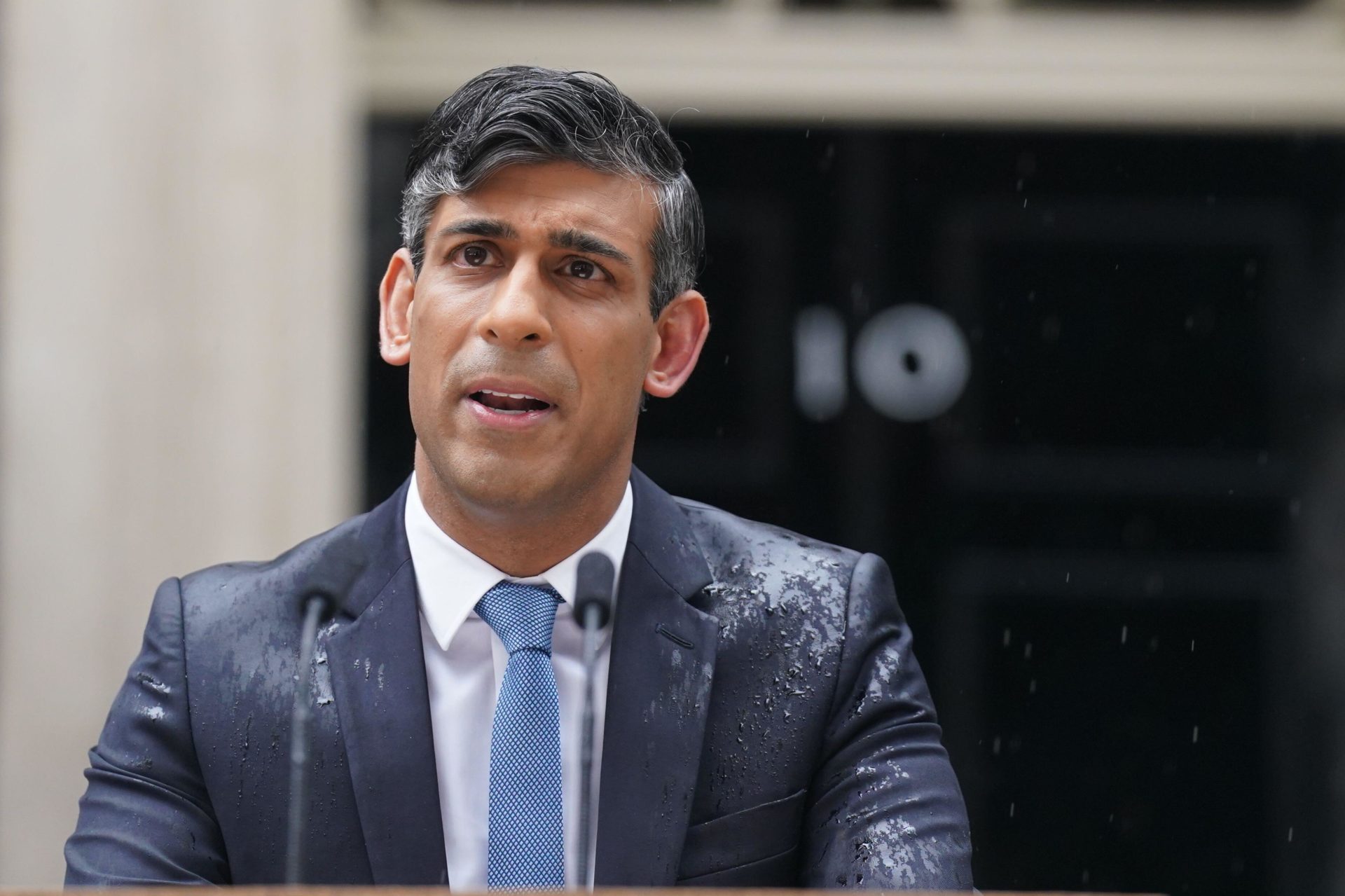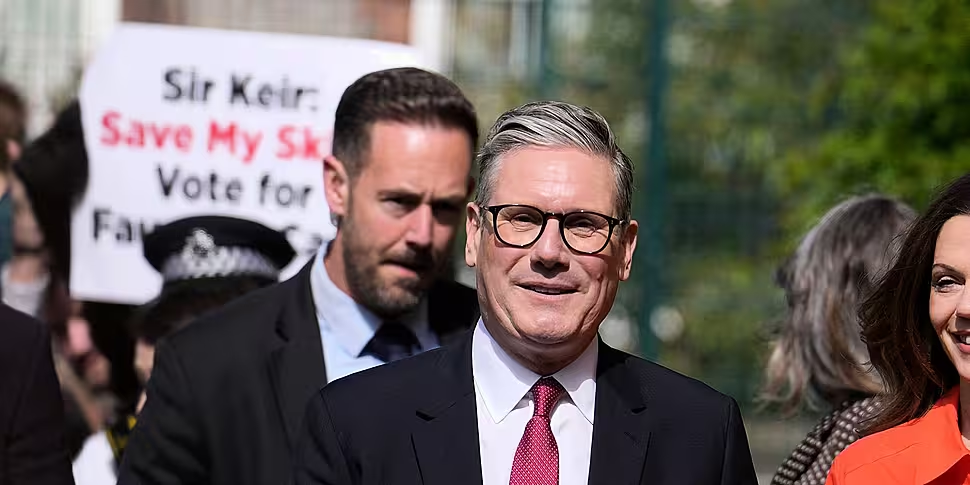Labour have won a landslide victory in the British general election, ending 14 years of Conservative rule, an exit poll suggests.
Keir Starmer's party looks set to secure the win with an estimated 410 seats - equating to an overall majority of 170 - according to the poll by Ipsos UK for Sky News/BBC/ITV News.
The exit poll suggests that while Labour have likely secured their anticipated landslide victory, they may have fallen just short of the 179-seat majority Tony Blair won in 1997.
 British general election exit poll poll by Ipsos UK for Sky News/BBC/ITV News
British general election exit poll poll by Ipsos UK for Sky News/BBC/ITV NewsHowever, they may achieve the landslide on a smaller share of the vote than what former leader Jeremy Corbyn secured in 2017.
Both the Conservative Party share of the vote and their seat tally could be the lowest in the party's history.
Here are the number of seats each party is expected to secure according to the exit poll:
- Labour: 410
- Conservatives: 131
- Liberal Democrats: 61
- Reform UK: 13
- SNP: 10
- Plaid Cymru: 4
- Green: 2
- Other: 19
To form a majority government in Britain's House of Commons, a party needs to win at least 326 seats.
It appears the Conservatives have suffered heavily in places where more than one-third of households have a mortgage.
It also looks as though Reform UK under Nigel Farage may win more seats than many polls suggested they would, although how many seats they will win is highly uncertain.
The Liberal Democrats have performed especially well in seats where they started second to the Conservatives - and particularly so in ones that the party held until 2015.
In Scotland, it appears the Scottish National Party (SNP) has suffered a more substantial reverse than was anticipated by most polls.
Last year, former SNP leader Nicola Sturgeon was arrested as part of a police probe into the party’s finances.
Ms Sturgeon denies wrongdoing but her husband, the party’s former CEO, has been charged with embezzlement.
 Rishi Sunak pictured making the general election announcement at Downing Street. Image: PA Images / Alamy Stock Photo
Rishi Sunak pictured making the general election announcement at Downing Street. Image: PA Images / Alamy Stock PhotoRishi Sunak - who took over from Liz Truss as British prime minister in October 2022 - struggled to make headway in a general election campaign that was beset by mishaps from the start.
Commentators questioned the decision to allow the Conservative leader to announce the election in the pouring rain, as well as the overall timing - which although designed to catch his opponents off guard, also caught his own side by surprise.
A number of communication blunders - including visiting Belfast's Titanic Quarter while wearing a life jacket - also had the effect of projecting the image that the Conservatives were fighting a losing campaign.
The biggest unenforced error came when Mr Sunak left D-Day commemorations in France early to attend a broadcast interview - something he apologised for but was asked about repeatedly in subsequent weeks.
Towards the latter half of the campaign, it was the revelation that one of Mr Sunak's closest aides, along with a number of Conservatives, had placed bets on the timing of the election that put even more pressure his operation.
He was forced to abandon support for those caught up in the scandal who are being investigated by the UK's Gambling Commission.
Reporting by: IRN









